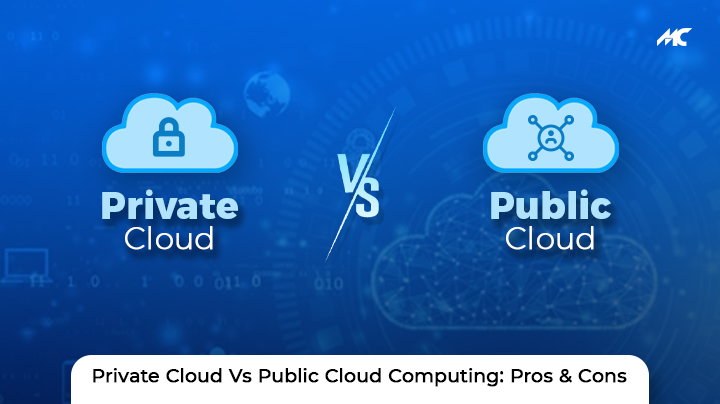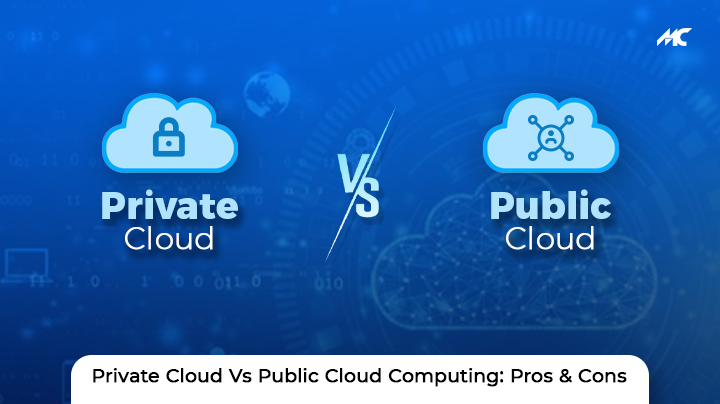Private Cloud Vs Public Cloud Computing: Pros & Cons
In the course of the most recent years, the world of the internet has advanced from a novelty. It is exclusively utilized by leading researchers and the military, to a broad (for all intents and purposes fundamental) utility utilized by everyone from grade-level schoolers to worldwide organizations. It’s not, at this point whether your business is utilizing the internet, the question arises how?
Nowadays, every business has the privilege to choose the services. Are you one of those who want to manage your software as well as hardware? Or do you want proficient professionals to do it for you? This is the essential decision between the bespoke framework and the cloud.
According to the Flexera 2021 State of the Cloud Report, 97% of respondent opted for Public cloud and 80% went for Private cloud services.
Types of Clouds Used
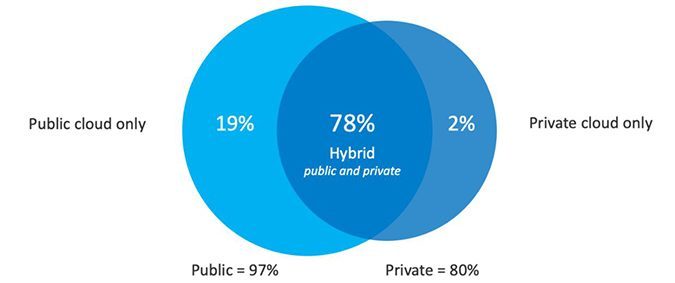

Even though the usage varies because of the COVID-19 pandemic.
Change From Planned Cloud Usage Due to COVID-19
% of all respondents
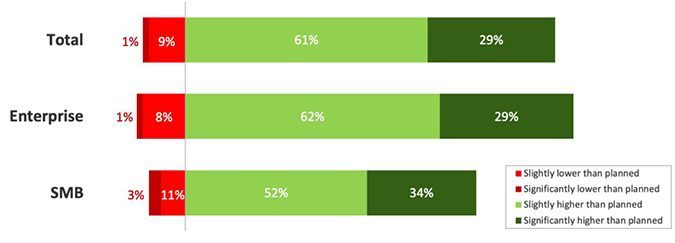

Cloud computing can be extensively divided into two classes:-
- Public
- Private.
Even though settling on the two can be precarious. So, in this blog, we have set up this guide to figure out which one is better for your business.
1. Public Cloud
A public cloud is an organization such as Amazon AWS or Microsoft Azure. It will give the data center incredible PCs and more storage than we can simply imagine. You can use this to rent the power and space.
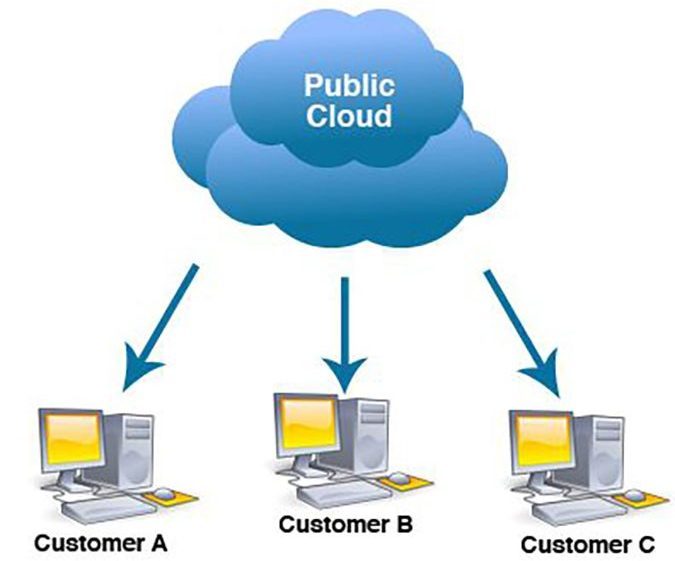

You can utilize these for singular applications – programming in a platform or an environment in the Platform As A Service model (PaaS), and a Software As A Service (SaaS) model, etc. You can also utilize it to have your all-out business systems as an architecture that is entirely cloud-based.
The way to understand the option of public cloud in knowing two things:-
- Your organization doesn’t possess the hardware.
- Your organization doesn’t have selective rights to utilize the hardware.
An organization gives the hardware and some level of programming, regardless of whether it is little in excess of an essential operating system. You can also customize and rent the full-on software suite within the impediments that they set.
For instance, Dropbox is a storage that is cloud-based. Webmail is an email that is cloud-based. Adobe Marketing Cloud is actually what it seems like.
2. Private Cloud
Private clouds are a more “conventional” plan of action or business model. In contrast to options of public cloud, you can control as well as own the hardware.
This implies your business sets up a system for administration stations, from which it runs business applications, servers, and whatever another programming is essential for your business to expand.


In this type of business model, you need a managed service provider or a dedicated IT team. They will upkeep the infrastructure effectively. You also need to employ services ( specialized) from the utilities such as options of backup power for the data centre and guaranteed uptime from the internet service provider.
You must also have a powerful backup system in the periodic maintenance, upgrades, adequate cooling, and events of failure.
Let’s check some of the pros and cons of the Private Cloud and Public Cloud.
# Security and Privacy
There are many who believe that the Private Cloud will win the show in terms of privacy. But this story is right though.
The concerns of privacy come in two distinguished ways:-
- Regardless of whether the data you put on the servers of the cloud is available to others outside of your association or organization.
- Whether it is feasible for your data to be penetrated by somebody getting to the servers from any other vector.
How Secure is Public Cloud?
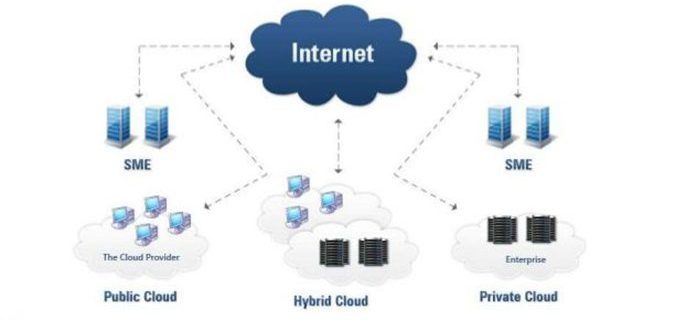

For the primary concern, a Private Cloud can be firmly secured. On the off chance if your organization is running exclusively through a solitary office, for instance, your cloud shouldn’t be available to any external connections of the internet, just internal connections of the intranet.


For bigger organizations or enterprises where there are multiple remote workers or offices, VPNs and other security types of connections can be utilized to get to the private cloud. Whatever may be the case, there are slim chances of getting your information or data getting breached by hackers.
Presently, both leading giants such as Amazon and Microsoft have exceptionally solid security on their workers, with restricted or confined admittance.
With a private cloud, you have some degree of safety through obscurity. If people around do not have the foggiest idea about the existence of your organization, there will not be a devoted effort to mess with.
Note:- But if your IT team is not fit to keep the security configuration secure as per best practices, that puts your systems at a higher risk.
In the case of the public cloud, the service provider manages the resources that are underlying.
In comparison to Public Cloud, Private Cloud is much secure and offers great privacy as you will have direct control over the data.
Private Cloud Vs Public Cloud
Consider Important Distinctions When Choosing Between These Two Models


#2: Costing
The comparison of cost between the two options of the cloud varies. Using cloud services such as Gmail will not cost you anything. They are free of cost. Nowadays, enterprise-level companies have employed remarkable services such as G Suits. They are comparatively pocket friendly and range between $6 to $25 per month.
The data costs associated with Private Cloud will only remain fixed. On the other hand, the costs vary because of policy (pay-as-you-use).
#3: Complexity
The complexity is totally inherent for a cloud system, and the contrast between a public and private can swing in one way or another.
In the case of a public cloud, one significant complexity can be easily handled via your hands: Hardware. You additionally might be restricted in how you can manage the architecture of the public cloud.
Some public cloud contributions are fundamentally servers. You can do anything you need with.
In contrast to it, some providers of public cloud are limited in what they can operate, cloud storage, webmail, and apps that are cloud-based such as WordPress.com, Office 365, and Canva.
#4. Reliability
There is a huge availability of the configuration in both clouds. Public cloud shares redundancy capabilities. On the other hand, the private cloud provides dedicated redundancy.
#5. Migration
The migration from the variant levels of the cloud services totally varies. You need to understand that migration to private cloud from local infrastructure is only to scale up the operation. Hence, it needs tricky imports of the data. It is also essential to re-train the users on the new system.
Migrating to private cloud from public cloud likewise needs the handling of the tricky data. It also depends upon the congruence of the private system you are using with the public system.
If you want to migrate critical information or data it is best that you hire a proficient professional from a leading software development company. They will minimize the downtime as well as technical snags.
#6. Scalability
This is one of the major cons of the private cloud. Scaling means purchasing new hardware, IT staffs, and software licenses. The costing may expand more quickly than to conform to the business requirements.
On the other hand, the scaling of public clouds is in place.
In a nutshell!!
The majority of mid and small-sized businesses can find the option of public cloud best for them. Because it offers the best balance between the pros of the cloud and expenses that are associated with the infrastructure that is running. It will also ease up the scaling of the business.
-

 Mobilecoderz Awarded as India’s Best iPhone App Development Company by Clutch
Mobilecoderz Awarded as India’s Best iPhone App Development Company by Clutch -

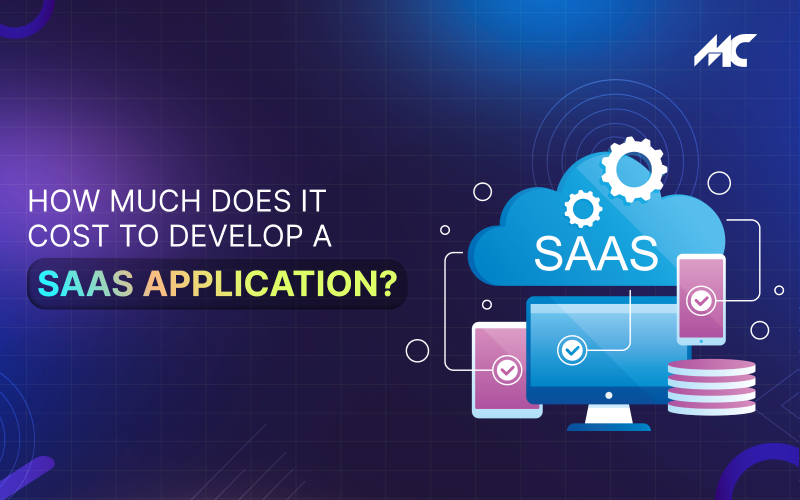 How Much Does It Cost to Develop a SaaS Application?
How Much Does It Cost to Develop a SaaS Application? -

 Mobilecoderz recognized as the Top App Development Company in Saudi Arabia by GoodFirms
Mobilecoderz recognized as the Top App Development Company in Saudi Arabia by GoodFirms




